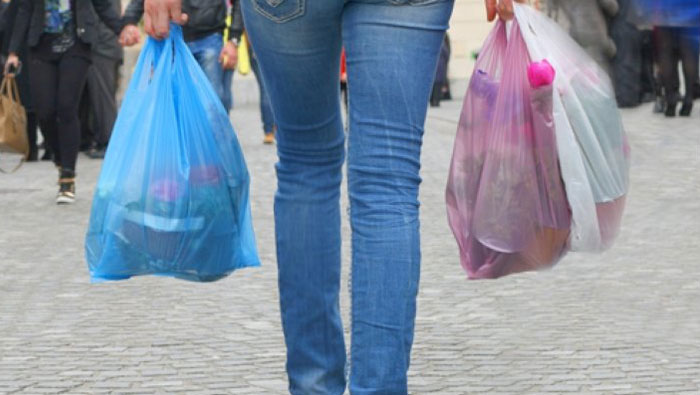
Muscat: Residents should pay a fee for every plastic bag they use, a senior environment ministry official has said.
Badriya Al Shahi, General Inspector of Waste Management at the Ministry of Environment and Climate Affairs, believes that paying for plastic is exactly what the country needs.
“It’s very important to have this in Oman. It affects the environment and marine life. There are some bags which disintegrate and don’t impact the environment as much as the non-disintegrating ones, but the source of the problem still remains,” Al Shahi said.
She was speaking as Shura Council members debated whether to recommend the introduction of a fee system where residents would pay a fee for plastic bags but be reimbursed if they return them.
Al Shahi said Oman has an issue with littering and plastic ending up polluting beaches and coastal waters, affecting marine life.
“How do these bags get into marine life in the first place? Perhaps if we made individuals pay for using plastic, then there might be a reduction in the amount of waste, but the issue of littering will still remain.
“We should be limiting, reusing or recycling these bags. We are already seeing the impact of plastic waste on our environment,” she added.
In a meeting of the Economic and Financial Committee of the Shura Council, the committee discussed imposing fees on the purchase of plastic cans and bags.
“This proposal aimed to reduce plastic consumption and recycling due to environmental and health damage caused by the increasing consumption of plastic,” the council advised, in an official statement.
Environment Society of Oman’s (ESO) Research and Consultation Manager, Maia Sarrouf Willson, said other countries which have implemented fees on plastic have recorded a reduction in plastic bags used.
“So why wouldn’t it be a success in Oman? The value of the price of a bag should be minimal, as to not add on another expense of shopping, but enough to make you think.
“Plastics are the main pollutant of the world. It is a synthetic material and can never be biodegradable. Eventually, the breakdown of plastic turns it into micro plastic which is then harmful to the whales that feed on micro-organisms as well as other smaller marine life. It is not solving the problem,” Willson added
“Plastic bags often end up in three ways: suffocation, entanglement, and accidental ingestion.
“It also causes the destruction of habitats. Oman is rich in corals and reefs. These bags create visual pollution. I have had many tourists come to me and say how they noticed all the trash on the beaches,” she said.
One supermarket chain manager said that around 75,000 plastic bags are consumed every day at his branch. “On average we get around 15,000 visitors who take home around five bags each every day,” he said.
“Though our bags are bio-degradable, it would be better if they are charged as that will reduce the consumption,” he said.
Another store manager said that they are always training their packing staff at the counters to limit the use of plastic bags.
“Because most customers prefer their shopping to be packed for them, we are continuously training the staff to make sure they minimise the use of bags,” another said.
Residents however, have mixed opinions. “I think people should carry their own bags,” said Ruma, an Indian expat living in Oman.
Another said that supermarket chains should start giving jute bags free if the bill is more than OMR10. “In that way they can limit the use,” Sushil Kumar said, adding that he doesn’t mind paying a little for the plastic bags.
Plastic waste in oceans is causing $13 billion of damage every year, according to a United Nations Environment Programme report. Worldwide plastic production is projected to reach 33 billion tons by 2050, and plastic makes up 80% of the litter in oceans and on shorelines.
In February 2017, the UN Environment Programme launched a global campaign, UN Declares War on Ocean Plastic, to eliminate major sources of marine litter, among them “eliminating the excessive, wasteful usage of single-use plastic by the year 2022.”